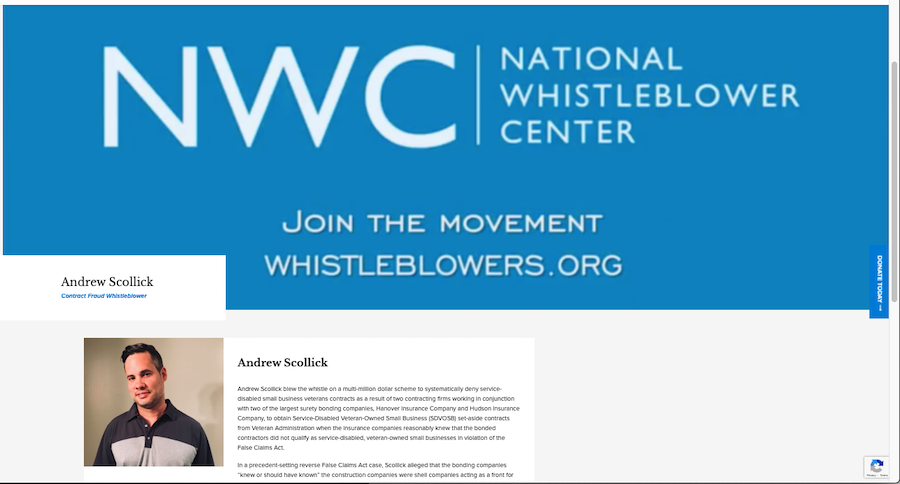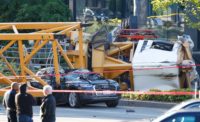False Claims Act Liability
Mediation Fails In Federal Lawsuit Seeking Damages From Sureties for Alleged Contract Fraud

After mediation failed, a federal whistle blower lawsuit over alleged fraud against two contractors, which also targets sureties and a surety bond producer, is moving forward. The parties have asked a U.S. district court judge in Washington, D.C. to rule on outstanding motions in preparation for a possible trial.
The whistleblower, Andrew Scollick, and the U.S. attorney for the District of Columbia in 2014 accused company owners in a civil lawsuit of fraud related to their eligibility for work under U.S. Small Business Administration (SBA) programs.
The case brings into question who is responsible for verifying the accuracy of information that contractors provide to SBA to qualify for set-asides.
The Narula case has been a “sword of Damocles” hanging over the heads of sureties that provide bonds to federal contractors.
– Matthew Wright, attorney, McCarter & English
Federal prosecutors learned of the case allegations from Scollick, who worked for two of the companies as jobsite supervisor. The contractors, Centurion Solutions Group and Citibuilders Solutions Group, are either SBA HubZone or service-disabled veteran-owned companies that qualify for set-asides under federal contracting rules.
The companies have links to Optimal Solutions and Technology Inc., a Washington, D.C. based contractor and consultant, the lawsuit alleges. Its main business appears to involve technology, with its owner and CEO, Vijay Narula, as the first named defendant in the case.
Federal prosecutors and agencies have been expanding the range of targets of False Claim Act lawsuits, attorneys have pointed out, and the case is being closely watched by the surety industry. Last September, Matthew Wright, an attorney at McCarter & English, described the case as a "sword of Damocles hanging over" sureties that provide bonds to federal contractors.
Scollick's attorney, Michael Kohn, notes that the surety bond provided to the contractors guarantees the work outlined in the contract.
Sureties are "guaranteeing all material terms of contracts" including ones related to SBA status, and in the Narula case, sureties "knew that material term would not be carried out from the outset,” he claims.
The two sureties named as defendants, Hudson Insurance and Hanover Insurance Co., could not be reached in time to comment. But Hudson Insurance's response to the lawsuit claimed that the standard form surety bonds provided to the contractors "do not incorporate those contractual provisions that mandate that a bond principal must be a service-disabled veteran-owned small business and, therefore "Hudson has no liability if the contractor" fraudulently certifies it is a service disabled veteran owned small business.
The broker of the surety bonds, another defendant, also declined to comment.
Projects performed by defendant contractors included several Dept. of Veterans Affairs construction and renovation jobs in the $4-million to $5-million range.
Attorneys for Centurion, Citibuilders and Optimal Solutions and Technologies could not be reached for comment. A message was also left seeking comment from Narula, Optimal Solutions and Technologies CEO, regarding allegations in the lawsuit. In his reply to the lawsuit, Narula denied many of the key allegations against him and claimed that any damages to Scollick or the U.S. were "caused by a person" over whom Narula said he had no control or responsibility.
A trial in Scollick v. Narula awaits the requested ruling by the parties on the various motions before the federal court in Washington, D.C.





